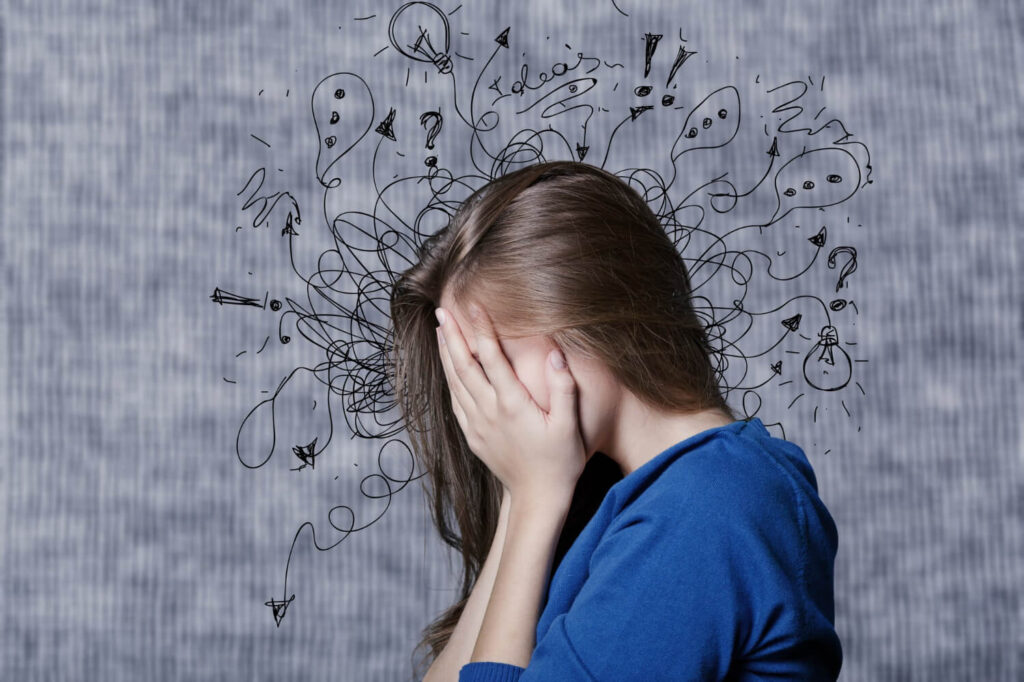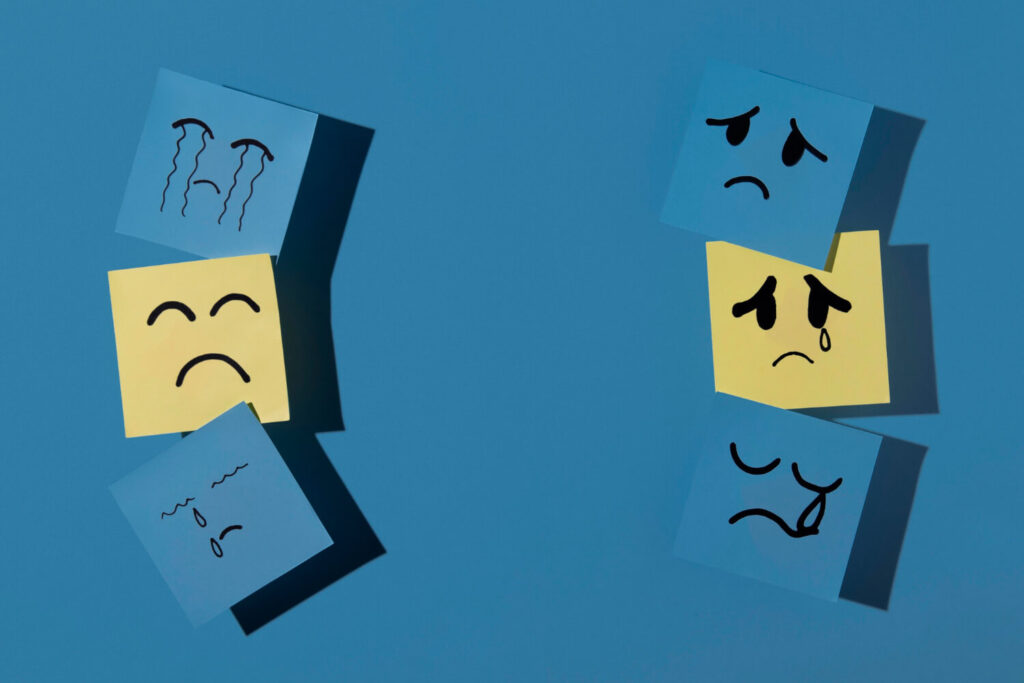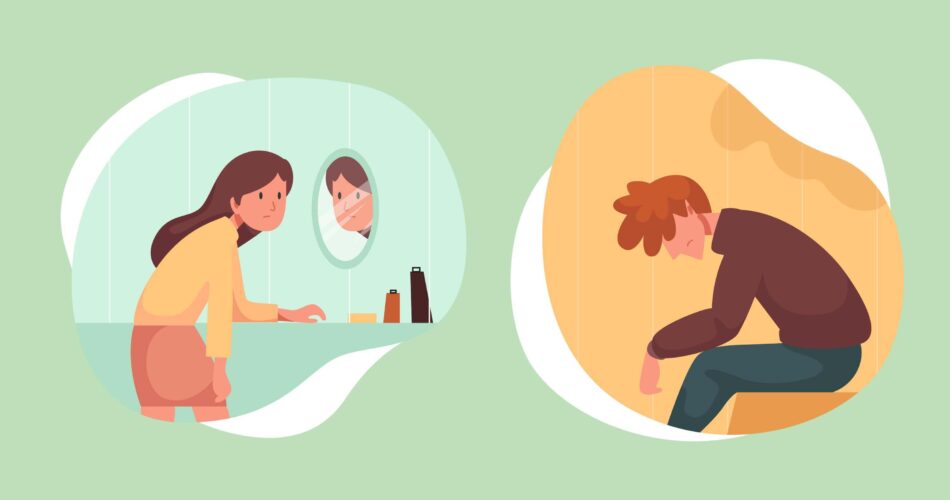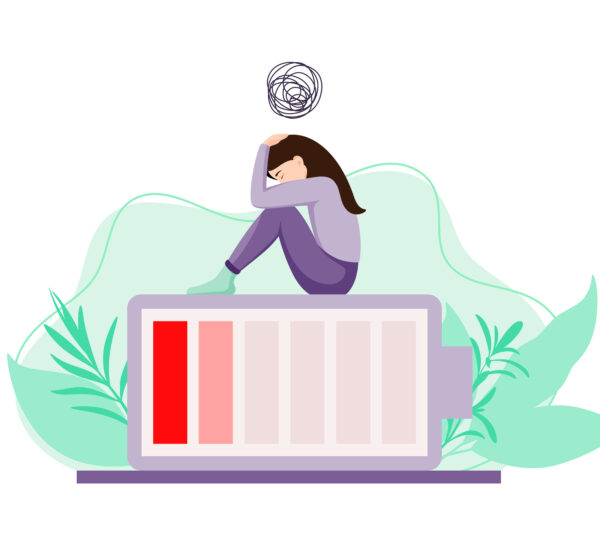In today’s fast-paced and stressful world, it’s not uncommon for individuals to experience occasional sadness or feeling down. However, when these mood changes persist, it could be classified as signs of depression.
Depression is a mental health condition that affects millions of people worldwide. People with this mental health condition commonly experience symptoms of depression that may initially come as harmless. However, it can progress until several more signs of depression like negative thoughts can appear.
If left untreated, it can have a significant impact on a person’s overall well-being and everyday life. In this article, we will provide a comprehensive overview of signs of depression to be aware of them and seek immediate help as needed. Let’s begin!
A Brief Overview of Depression

Before we delve into the signs of depression, it’s important to have a basic understanding of this condition. As mentioned, depression is a mood disorder that affects how a person thinks, feels, and behaves. It goes beyond feeling sad and can disrupt daily life activities.
Depression is characterized by persistent feelings of sadness, hopelessness, and a loss of interest in activities once enjoyed. It can affect anyone, regardless of age, gender, or socioeconomic status. While everyone experiences ups and downs in life, depression is more than just a passing phase. It can last for weeks, months, or even years, requiring professional help to overcome.
Types of Depression
This mental health condition can involve various types. The type of depression may involve how severe the symptoms and the duration of their occurrence. Thus, showing how each type differs, and why each should be taken seriously when they occur.

Here are the different types of depression:
Major Depressive Disorder
One of the most common types of depression is Major Depressive Disorder (MDD). It is also known as clinical depression, which is characterized by a persistent feeling of sadness or a lack of interest in activities. Individuals with this major depression may experience changes in appetite, sleep patterns, and energy levels.
Persistent Depressive Disorder
Also known as dysthymia, this type of depression involves long-term symptoms that may not be as severe as MDD but can still have a significant impact on daily life. People with persistent depressive disorder may feel consistently low energy and self-esteem.
Seasonal Affective Disorder (SAD)
Meanwhile, this type of depression is related to changes in seasons, with symptoms typically occurring during the fall and winter months when there is less natural sunlight. In the Philippine context, patients may feel signs of depression during the cold and rainy days, such as during the ‘ber months.
People with SAD may experience mood swings, oversleeping, weight gain, and feelings of lethargy.
Bipolar Disorder
On the other hand, another mental disorder that can occur is bipolar depression. Formerly known as manic-depressive illness or manic depression, bipolar disorder involves extreme mood swings that include emotional highs (mania or hypomania) and lows (depression). The shifts in mood can be intense and disruptive to daily functioning. It is best to seek immediate help to avoid consequences when episodes occur.
Postpartum Depression
This type of depression occurs after childbirth and can affect the parents, especially the mothers. Most new mothers experience the feeling of severe sadness, which can be a difficult time for them. During this time, the patients will need a strong support system to help them get through, and to avoid unwanted actions. Thus, it can protect the mothers, and their babies too.
Prenatal Depression
Prenatal depression, also known as antenatal depression, is a type of mood disorder that occurs during pregnancy. It can affect expectant mothers and even fathers and can have serious implications for the well-being of both the parent and the baby. Symptoms include feelings of sadness, anxiety, and fatigue, which can impact the pregnancy experience and the health of the child. Seeking support from healthcare providers and loved ones is crucial in managing prenatal depression to ensure a healthy pregnancy and birth outcome.
Common Misconceptions About Depression

Despite its prevalence, there are several misconceptions surrounding depression that can hinder people from recognizing depressive symptoms and seeking help. It is important to analyze these misconceptions and understand which are true, and which are false. Thus, allowing patients to fight the stigma, and be more proactive about seeking help for their mental health.
Here are some of the common misconceptions:
Depression is A Sign of Weakness
One common misconception is that depression is a sign of weakness or a personal flaw. However, depression is a legitimate medical condition, just like any other physical illness, and should not be trivialized or stigmatized.
Depression is Easy to Deal With
Another misconception is that depression is something that a person can simply “snap out of” or overcome with willpower alone. In reality, depression often requires a combination of therapy, medication, and lifestyle changes to manage effectively.
Depression Equates to Feeling Sad
While feeling sad is one of the signs of depression, this mental health condition is more than that. Depression involves the connection between emotions and one’s physical health. In short, people diagnosed with depression can also show physical signs of depression. For instance, weight changes, lack of energy to do physical activities, and sleep schedule changes can occur.
It is important to take note of these misconceptions and to move past them to achieve mental healing. Dealing with depression, especially the severe cases can be challenging. That’s why it is best to seek immediate help to receive a proper diagnosis of depression from a doctor, and get treatment.
Identifying the Signs of Depression
Recognizing the signs of depression is crucial for early intervention and treatment. As mentioned, there are physical and emotional signs of depression. Let’s discover each of them below!

Physical Symptoms of Depression
Depression can manifest itself in various physical symptoms. These depression symptoms can often be mistaken for other medical conditions, which is why it’s important to consider them in conjunction with emotional and behavioral changes.
For instance, fatigue can be an overwhelming symptom of depression. It’s not just feeling tired; it’s a constant state of exhaustion that makes even the simplest tasks seem insurmountable. Imagine waking up in the morning and feeling as if you’ve run a marathon the night before. This debilitating fatigue can affect one’s ability to function and enjoy life.
Other physical signs of depression involves the following:
- changes in appetite or weight
- sleep disturbances
- chronic pain
- headaches
- digestive problems
Emotional Indicators of Depression
Meanwhile, the common signs of depression that people recognize involve the emotional aspect. Imagine waking up every day with a heavy heart, feeling an overwhelming sense of sadness that seems to have no end. It’s like carrying a weight on your chest, making it hard to breathe. This emotional burden can make even the simplest tasks feel like climbing a mountain. It’s important to recognize these emotional indicators and seek help when needed.
Here are some of the common emotional symptoms of depression:
- persistent feelings of sadness
- emptiness
- hopelessness
- difficulty finding pleasure or interest
- irritability
- increased sensitivity
- lack of motivation or energy
Alarming Signs of Depression You Shouldn’t Ignore
While the signs of depression can vary from person to person, some warning signs should not be disregarded. These depressive symptoms may indicate a more severe depression that requires immediate attention.

Here are some of the alarming signs of depression that you must monitor.
Persistent Feelings of Sadness or Hopelessness
If you or someone you know experiences persistent feelings of sadness, emptiness, or hopelessness for more than two weeks, it could be a warning sign of depression. These feelings may not have an identifiable cause or may be disproportionate to the situation at hand.
Loss of Interest in Activities Once Enjoyed
A significant loss of interest or pleasure in previously enjoyable activities is another red flag for depression. Hobbies, social gatherings, and personal interests may no longer bring the same joy or excitement as before, leading to a sense of emptiness and emotional numbness.
Significant Changes in Appetite or Weight
Some individuals may experience a decrease in appetite, resulting in weight loss. Others may turn to food as a source of comfort, leading to weight gain. Unexplained and significant changes in appetite or weight should be evaluated and discussed with a healthcare professional.
It is crucial to recognize and address these signs of depression promptly to prevent the condition from worsening. Seeking help from a mental health professional or therapist is essential in managing and treating depression effectively. Remember, you are not alone, and there are resources and support available to assist you in navigating through this challenging time.
Impact of Untreated Depression
A mental health condition like depression can affect almost every aspect of the patient’s overall well-being. In that case, there’s no denying how crucial it is to address the symptoms early on to avoid possible consequences. That’s because untreated depression can progress to severe depression. Thus, it is possible for other medical conditions to occur like anxiety disorders. Furthermore, if such conditions overtakes the well-being of the patient, problems may arise such as harming oneself or suicidal thoughts can occur.
Additionally, there are certain situations that can occur if one’s depression is not managed immediately. There are cases wherein substance abuse such as drugs, alcohol, and tobacco use can occur. These vices can be difficult to let go when the patients are in too deep with their usage. It can’t be good as substance use can have an addicting effect to most people. In short, untreated depression can push people to initiate using certain substances. Some people use them for self-medicating purposes, while others just want to try them until they can’t let go.
These scenarios are just some of what can occur if people try to disregard the signs of depression. Of course, individuals and their family members can still prevent such scenarios from happening. In short, seeking immediate help from a qualified doctor is important.
Seeking Help for Depression
As mentioned, recognizing the signs of depression is essential, but seeking professional help is equally important for proper diagnosis and treatment. This complex mental health condition can impact various aspects of a person’s life, including their emotions, thoughts, and behaviors. It can manifest differently in each individual, making it crucial to seek personalized support from a qualified professional.
If you or someone you know is experiencing any of the signs of depression mentioned earlier and they persist for more than two weeks, it is recommended to consult a mental health professional. They can conduct a thorough depression test and other evaluation for a proper diagnosis. Afterwards, determining the most appropriate course of action, whether it be therapy, medication, or a combination of both can occur.
It’s important to remember that reaching out for help is a proactive step towards managing your mental health. By seeking assistance early on, you can prevent the escalation of symptoms and work towards a path of healing and recovery.
Where to Go for Help
When seeking help to deal with health problems like depression, it is important to be aware of the possible options to utilize. Online platforms are available for a more convenient choice for a health consultation. Thus, allowing patients to seek guidance from doctors at the comforts of their home.
Meanwhile, patients can also try seeking help from their local health clinics. Community centers might have some awareness programs about dealing with depression that can help guide individuals.
Another option is to visit a hospital. It is ideal to research reputable hospitals that can offer the quality services you need to address depression.
Conclusion
Understanding the importance of knowing the signs of depression is important for people suffering from this mental health disorder. These symptoms are warning signs that people should recognize to avoid possible progression of the condition. When that happens, unwanted choices and poor behavior can occur. Unfortunately, some have suffered more and impacted their life because of disregarding the signs of depression. That’s why if you are noticing signs that align with depression, it is time to be proactive with your mental health. Choose to embrace mental healing by seeking help. Book an online consultation with a psychiatrist today for an immediate health intervention!



